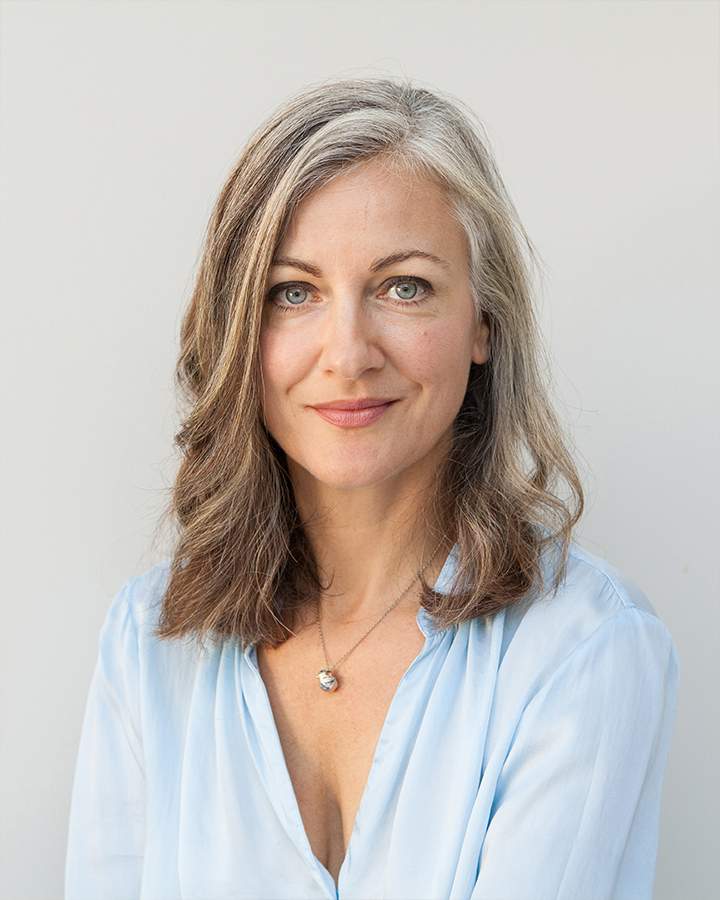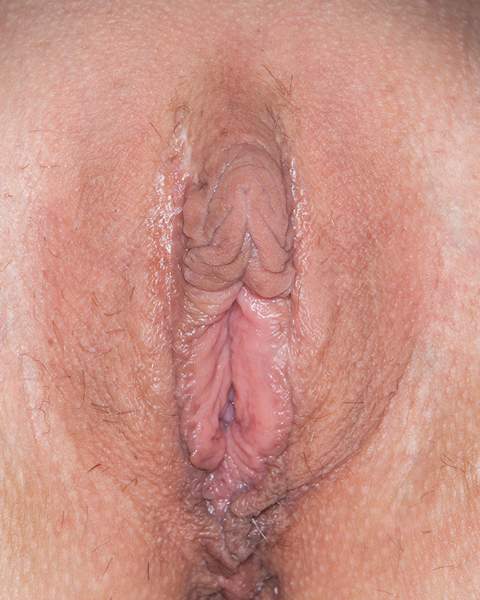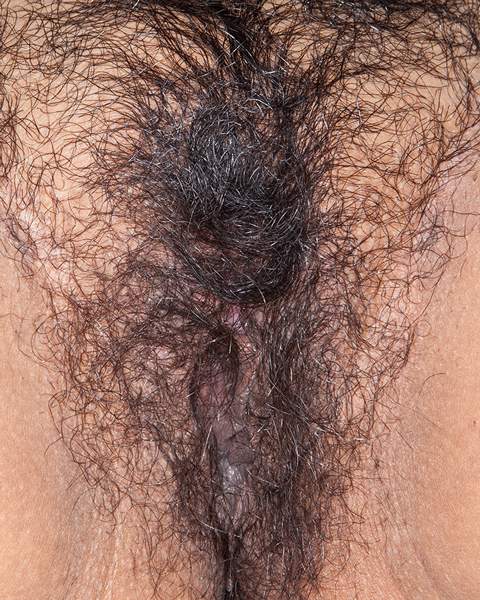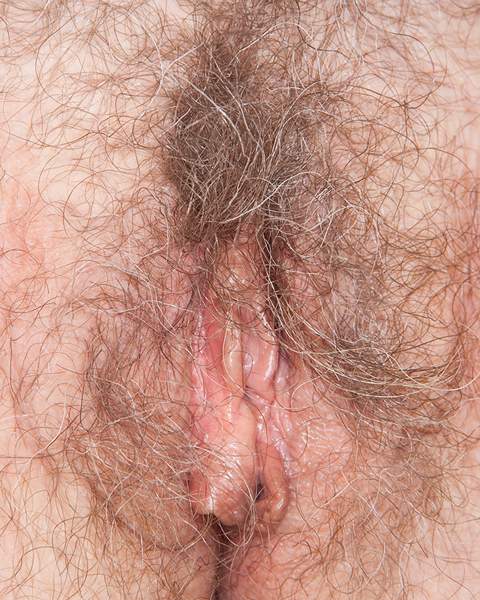Why I photographed 100 vulvas
Most women have no idea what’s down there – there’s no such thing as ‘normal’

Contains adult themes, explicit imagery and very strong language
“Where would you normally see another vulva?” photographer Laura Dodsworth asks me. “Mainly only in porn,” she answers. “Especially if you’re looking online. But there’s a world of difference between how you see vulvas in porn – and how you see them in real life. It’s so important for women to know what vulvas look like. It can help with body image anxiety. We really need to talk about them because many women haven’t looked at their own. They don’t know what’s down there.”
I first met Laura, a photographer from Surrey, in 2015 following her exploration of 100 women’s relationships with their breasts.
The campaign reached its crowd-funding target of £10,900 in a day and featured powerful, untouched images and stories of anonymous participants aged 19 to 101.
In 2017, she focused her lens on penises to examine the concept of masculinity.
Now, her latest work puts vulvas and vaginas in the spotlight thanks to her new book Womanhood: The Bare Reality and forthcoming Channel 4 documentary: 100 Vaginas.
And when 100 women share intimate photos and deeply personal experiences relating to their vaginas, the result is a tender yet taboo-exploding message of women reclaiming their womanhood. At least, that’s what Laura set out to achieve.
“I never thought I’d do this,” she says. “In my mind, I’d already covered women’s stories through breasts. I also didn’t want to do it because I hadn’t faced myself in that way. I think a part of me was shying away from that intimacy because I would have to address my own related experiences. You can’t go into a project where you interview women about their vulva, and not think about your own. And although I’ve had pleasure, I’ve also experienced bad sex, traumatic birth and deep shame. In short: I’d have to confront the big stuff.”

Photographer Laura Dodsworth
So what changed her mind?
“Three things, actually,” she says. “I read a report about how 200 million girls and women around the world have suffered female genital mutilation (FGM), which angered and sickened me. Shortly after, I came across a PDF health leaflet that disrespectfully referred to the vagina as ‘a front hole’. The correct language and understanding of female genitalia is so important to me: the vulva is the whole external package, the vagina is a muscular tube which leads from the cervix (the neck of the womb) down to the vulva.”
Later, a BBC report about girls as young as nine seeking labiaplasty – surgery that involves the lips of the vagina being shortened or reshaped – because they were distressed by its appearance, had Laura reaching for her camera again. “The idea that girls and young women think their vagina is ugly and want to change how it looks is just wrong, and sad.”
Consultant gynecologist Dr Pandelis Athanasias says “there’s no such thing as a normal vagina – they naturally vary in size, shape or colour.”
There’s also a misconception that the labia is supposed to be a certain length. “Studies have found that the labia majora (outer lips) length varies from approximately 6 to 12cm, and labia minora (inner lips) length varies from 2 to more than 10cm,” he explains. “Labia can be thin or thick, darker or lighter and sometimes longer on one side. The key is not concentrating on the size or shape but whether it affects your physical or emotional wellbeing. And if it’s impacting your daily life, that’s when a gynecologist consultation is recommended.”
Despite the expert assurance, Dr Athanasias believes labiaplasty is “on the rise.”
Dr Naomi Crouch, chair of the British Society for Paediatric and Adolescent Gynaecology, has also noticed a “marked increase in girls and young women seeking labiaplasty” over the last few years.”
She believes a cultural change amongst adolescents and young women, who now choose to remove or style the pubic hair, coupled with a lack of understanding about vulval anatomy, is fuelling the rise. “The vulva takes many years to develop,” she says.
“The labia minora are usually first, and sometimes more prominent during the early stages. But it can be hard to find accurate information about this.”
Which is where Laura’s project comes in. “I thought perhaps the rise in labiaplasty wouldn’t be happening if people understood more about what other women looked like,” she says. “Some people will be shocked by my images, but I think they form an educational purpose.”
The idea that girls and young women think their vagina is ugly and want to change how it looks is just wrong, and sad
Although Laura admits to being nervous at the beginning. “I hadn’t knelt before a woman with her legs spread before.”
That said, within a couple of weeks of putting a call out for volunteers, she had over 100 willing participants from all over the UK. “The hunger for this was fierce,” she recalls. “It’s chiming with something right now. Maybe it’s in the wake of #MeToo and #TimesUp – women want to reclaim their bodies, and their stories. It’s why I wanted to represent different ages, ethnicities, backgrounds – as well as women’s different experiences relating to their vulva.”
Photographing this intimate area led to some unique and deeply personal stories. “Each one has stayed with me,” she says. “The 46-year-old virgin. The woman who endured FGM. The woman who had her vagina removed because of cancer.”
But she also heard positive stories of sexual pleasure and pregnancy. “One woman had an orgasm when she gave birth, another talked about the different types of orgasms she can have, which inspired me to think about sensuality differently. Then there was the 70-year-old woman who has ‘a lawnmower of a vibrator’. I loved that, because interviewing women who have been through the menopause and still have incredible sex lives sends out a beautiful message about womanhood.”
All 100 women photographed in Laura’s project
However, sadly, many of the conversations she had with her participants were tied with a disturbing thread of abuse. “I was really shocked by how many women brought up sexual assault. I’d be talking to someone whose story I thought was about their wonderful sex life or a health condition, and they’d open up about being raped or an experience in childhood of grooming.”
Even though she refers to it as the hardest part of the project, Laura believes including so many of these harrowing experiences adds to the impact of her message – because there is no singular female experience.
“Some of the women I met had looked at themselves lots, some women had never looked and didn’t want to see it, and some women saw it for the first time on the back of my camera, which was a big deal. They asked me, ‘Is that what it’s supposed to look like?’, and I found myself explaining what different parts of them are and telling them that’s everyone’s different.”
The idea that women are turning away from pleasure because they’re worried about what they look, smell and taste like has unearthed a fundamental message for Laura.
“Shame is a really big problem for human beings,” she sighs. “Where I’ve found that, generally, men are under pressure to be ‘enough’ – big enough, getting laid enough, rich enough, man enough – women feel like they’re ‘too much’ – too fat, too hairy, too saggy, too female. Frankly, we just need to be as we are. Yes, you can look at the photos and go ‘Wow, we all look really different’, but it’s also about connecting with the honesty of these stories. Because if you find yourself feeling admiration, pride and inspiration for another person, it becomes easier to apply that to yourself, too.”
Does she expect any backlash? “There’s nothing gratuitous about what I do,” she says. “I’ve always made a conscious attempt to photograph body parts in a way which is simple, comparative and non-sexualised. That doesn’t mean I think breasts, penises and vulvas can’t be sexual. But I photograph them so we can simply go, ‘That’s what they look like’.”
With that in mind, she couldn’t not confront her own vulnerabilities. “When I first looked at my vulva I thought, ‘Whoa, there’s a lot going on there!’ But taking part has been transformative for me: I’m more comfortable in my skin as a woman. It’s a pivotal experience to do something like this because it’s so exposing.
“I feel like I’ve been a creative warrior for women, helping them reclaim their bodies and their stories – and I’m fiercely protective of them. I hope it’s a game changer, especially for young women. If I’d seen and read this when I was 18, I think my entire life would have been different.
"I’m not exaggerating, I think it would have changed everything for me.”
Whether it’s power, pleasure, impassiveness or pain, each woman’s relationship with her vulva is completely individual. These six anonymous women – who bravely bared all for Laura’s project – prove just that…
“My labia felt like big elephant ears”
Aged 30, no children
When I masturbated when I was younger, I used to hate it when my clitoris got bigger – I thought it looked like a penis. I felt very self-conscious about it. I thought my labia were too big as well. I had to be drunk to have sex and I never let anybody pleasure me.
I thought the area of the vagina should look like the ones that I’d seen in porn on the internet, and they looked polar opposite to mine. Porn made me feel like shit in all sorts of ways – I think I wasted 12 years of my life suffering because of what I thought my vagina looked like.
I watched a documentary that talked about porn stars who were having operations to make their labia smaller. I realised it was something you could have done so I went to my GP and I had a bit of a breakdown. The consultant I saw said that labiaplasty would help me, but it wouldn’t be done on the NHS. He referred me to a private doctor.

I was awake throughout the procedure. He injected anesthetic into the labia and up into my bottom – and then just sliced away. In reality, my labia were probably quite small pieces of skin, but to me they felt like big elephant ears. I lay there thinking how much better my life would be afterwards.
My recovery was horrific. I knew there was going to be swelling but it looked like a huge hamburger and I couldn’t even put my legs together. It was very painful.
I feel more comfortable day-to-day; sitting down or crossing my legs in jeans. My labia [also] used to get caught in tampon applicators, so now I can use tampons. But I don’t really have any confidence. I wish I did. I’m trying to stop worrying about what other people think of me. I want to find out who the real me is because, at 30, I still don’t know.
“It’s not a porn-perfect fanny”
31, no children
I’ve never looked at a photograph of my vulva. I’ve never even looked with a mirror. I’m nervous that I might be grossed out by it. I don’t beat myself up, but it’s interesting that I still have that split-second thought that it’s not a porn-perfect fanny. Not that I even want one.
I’ve never had any complaints. I also know when a chap is in the bedroom and he’s about to get his end away, he’s not going to be thinking, ‘Oh, it could have done with a bit of work’. He’s just thinking, ‘Fab, I’ve got a shag’.
I’ve actively campaigned against FGM for the last ten years. One of the things I do is talk about how women don’t look at their fannies; we don’t even talk about our fannies. I’ve talked about some really personal things with close friends, but not fannies.

I was born into a Muslim Pakistani family. I am no longer a Muslim and I kind of don’t tell people that I am Pakistani, but I am. I can take part because this is anonymous. There are two things that my family don’t know about me that would push them over the edge. One, that I’ve had sex and two, that I eat pork. Of course, they’re completely deluded if they think that I haven’t had sex.
It’s taken me years to get myself into a safe situation where I can do and say whatever I want. Honour killings still happen, even here in Britain.
I marched at Pride decorated with body paint and had my tits out [but] there were objections. There were men in Borat-style mankinis, men in fetish animal costumes, men with their nipples out. None of that was a problem, but the odd female nipple here and there... I feel like it’s just men telling women what to do again with their bodies. Women’s bodies should not be seen as more offensive than men’s.
“I don’t define myself as a woman anymore”
41, no children
I have seen, touched, indeed worshipped many vulvas. And yet I have never had the courage to look at my own. I have identified as a lesbian most of my life. I desperately wanted to be a boy as a child. I hated my body, my gender, for many years. Since then I have come full circle to a place of love and reverence for who I am – and what I am made of.
I was afraid of penises my whole life. First I wanted to have one. Then I entered puberty and my breasts grew, and I knew there was no way I was going to be a boy. Then I was hurt by penises. I was molested by my father and I had teenage interactions with boys who put pressure on me.
I didn’t grow up with my father but I thought he was incredible. When I was a teenager, I’d go and spend the weekend with him. One night he got into bed with me and started touching me. The next day I confronted him. His reasoning was that he wanted me to realise that I had a beautiful body and that sex was a wonderful thing. I was like, ‘You’re not the right person to be teaching me any of this because you’re my father.’
A lot of healing has come about through having many pleasurable, gentle experiences at the hands of other women. In the last couple of years, I have discovered that there are so many more labels and identities and the world is really opening up. I don’t define myself as a woman anymore. I identify as non-binary or genderqueer. I prefer they/them pronouns, and to have Mx in front of my name rather than Mr or Ms. Sex may be the genitalia we are born with, but gender is a social construct.
Ultimately I want to live in a world where we are people and not defined by what’s between our legs. My sexual preference is polysexual, which means that I am attracted to different genders, though not necessarily all. We wrap qualities up in this umbrella of masculine or feminine, like being nurturing is seen as feminine, but those are stereotypes: we all have the capacity for those things within us. My life journey has been about finding balance within myself – and that’s where I’m finding my healing.
“My vulva reminds me of a pink cupcake”
28, no children
My vulva reminds me of a pink cupcake. The labia and clitoris look like layers of piped pink icing. I know not everybody’s comfortable and excited to show the world their genitals, but looking at her now, she is pretty. She looks delicate, symmetrical and neat. It’s a nice reminder of what’s in my knickers.
Over a few weeks, I bled a lot between periods, and also after sex with my boyfriend at the time. I googled bleeding and it came up with lots of different things: an STI, hormonal imbalance, cervical cancer.
I went to the doctor and, although I was too young [24] for a smear test, she did one anyway. I was sent to the hospital for a colposcopy, which involves a camera going into the vagina. A consultant said, ‘I’ve been doing this for 30 years and I’d be surprised if it wasn’t cancer’. Two weeks later it was confirmed. I felt hot, sweaty, shaky. ‘Cancer’ means dying, that’s what we all think it means. I was just 24, I couldn’t understand how this could be happening.
I had a stage 1B grade 3, which is small, but nasty. Thankfully it was caught early. I had my cervix removed, the surrounding kind of tissue area and the top third of my vagina and, thank God, didn’t need further treatment, like chemotherapy. I can get pregnant, but because there’s no cervix there’s a high chance of miscarriage or early birth.
There’s a lot of stigma around having a gynaecological disease. Somebody at my old job asked what kind of cancer I had, and when I said cervical, she said, ‘Oh, how do you get that?’ You wouldn’t ask the same if I’d said breast, bowel, or brain – but when it’s something in between your legs, there’s an assumption that you’ve done something wrong; that you’ve slept with a lot of people. It is a cancer that’s associated with sex, as in most cases you get it from the HPV virus, which is transmitted through sexual contact.
I feel a bit broken as a woman because we’re supposed to carry babies. Also, I have a shorter vagina now so I can’t even get the same pleasure I used to. I felt angry that the part of my body, which is central to women’s identity, had done a number on me at 24.
Over a quarter of women in the UK are not attending their cervical smear appointments. Sometimes there are serious reasons, but often women are embarrassed to show their genitals, or they feel embarrassed they might smell. It makes me feel sick that shame and stigma around gynae health means that some women won’t be as lucky as I was.
“Whatever you’ve got is wonderful”
Aged 70, three children
I love my beautiful c**t, it’s a gorgeous pinky red colour. It’s been appreciated by partners, too.
I didn’t have sex until I was 25. I married in the 1970s and got a divorce on the basis of non-consummation: on our wedding night my husband said he had a headache. I thought, ‘Fair enough’ – but it went on for three years.
I went to see a marriage guidance counsellor and she said unhelpful things like, ‘Perhaps you ought to wear a sexy black nightdress’. I knew it wasn’t about me, it was about him. I was resigned to it, but I wanted children. I met somebody else and that changed everything. We had brilliant sex, and then we had children.

It was through my involvement with the women’s movement in the 1970s that l found my voice and the strength to confront patriarchy. I began to express my sexuality on my terms. Since I split up with the father of my children back in 1981, I have not lived with a sexual partner.
I’m 70 and I still enjoy sex. I see my current partner for extended weekends. For half the week I do my own thing: I look after my grandchildren, I belong to a women’s drama group, I see my friends. I was ready for the menopause to happen. I think we have to come to terms with life’s changes in the most positive way we can. You lose some of your lubrication, but a little bit of spit solves that problem.
I became a midwife because I’m a feminist. Very often women aren’t empowered in the process of giving birth and I wanted to try and encourage them, give them more self-confidence. It’s wonderful to see the baby come through the birth canal. It happens with a great deal of effort from the woman. I’ve probably seen more vaginas than most people, and they’re as different as our faces or our hands. Whatever you’ve got is wonderful.
“I’m unlikely to conceive naturally”
Aged 26, no children
My vulva is happy and majestic. It’s heart-shaped and it isn’t one colour, there are different shades of brown. It’s kind of tidy, but it’s also an organised mess. I think there’s something really powerful about having the opportunity to look at yourself in more detail. It gives you a different appreciation for your body.
My early experiences of womanhood started with the women who raised me: my nan taught me about enjoying yourself, your body and who you are. My mum is my best friend, there’s nothing that I don’t share with her. I decided I wanted to wax my vulva, and I asked [her] to do it. My mum gave birth to me so there’s nothing that I have that she hasn’t seen. And I trust her.
I never wanted to have children until I developed reproductive health problems. When I was 19, I had a Mirena coil fitted and that caused me to get pelvic inflammatory disease, which was excruciatingly painful. I grew a cyst on my right ovary very rapidly. I was in and out of A&E and I had to suspend my studies at uni. In the end I had emergency surgery that resulted in the loss of my right ovary and fallopian tube and they drained five litres of fluid from the cyst.
I continued having pain, but I kept being told it was normal. It turned out I have endometriosis, uterine polyps and fibroids, which was a blow on top of a missing ovary. The really big deal was finding out that if I waited too long, I would be unlikely to conceive naturally, if at all.
Having endometriosis means that my periods are irregular and can be excruciating. It’s like a hot, burning sensation in my uterus that radiates throughout the lower half of my body, into my hips and down into my knees. People think I’m exaggerating, but sometimes I can’t work. I also get a sudden sharp shooting pain in my vagina, which catches me off guard. It’s exhausting having to live with a level of pain that never really goes away.
It got to the point where I was obsessive in my desire to have a child. My mum told me I needed some counselling. I started to re-evaluate what womanhood could look like for me, outside of my biological capabilities. I think we kind of take for granted that we’re going to be able to have children. Not being able to conceive doesn’t reduce your value as a woman, it doesn’t make you less of a woman – but that’s kind of what society tells us.
All images © Laura Dodsworth